Question And Answer
Publications
Articles, publications, books, tools and multimedia features from the U.S. Institute of Peace provide the latest news, analysis, research findings, practitioner guides and reports, all related to the conflict zones and issues that are at the center of the Institute’s work to prevent and reduce violent conflict.
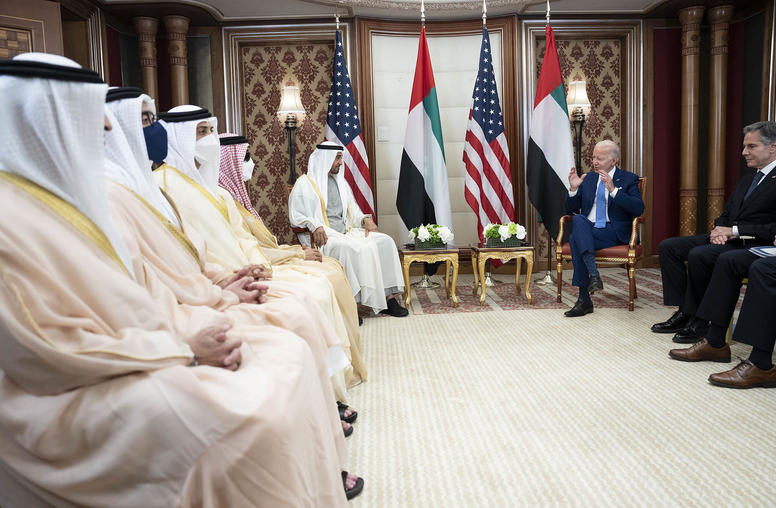
Five Messages Biden Should Take from His Middle East Trip: A Regional Perspective
Before and since President Biden took office, debates have proliferated around an American “retrenchment” from the Middle East. The administration has consistently asserted that it is not withdrawing from the region, only aligning strategy and resources — “right-sizing” in the parlance of the moment. Still, most of the region remains unconvinced.
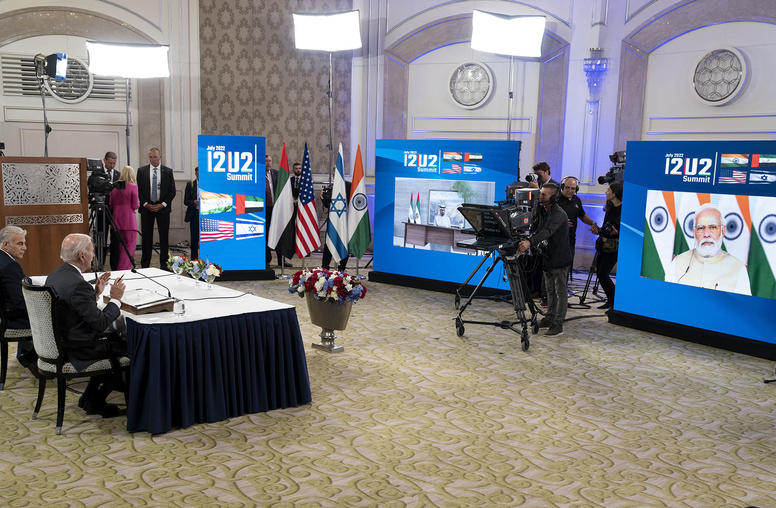
What You Need to Know About the I2U2
As part of his visit earlier this month to the Middle East, President Biden participated in the first leaders summit of a new grouping made up of Israel, India, the United Arab Emirates and the United States. Known as the I2U2, the countries’ foreign ministers formed the bloc in the fall of 2021 to deepen technological and private sector collaboration in the region and tackle transnational challenges in six focus areas: water, energy, transportation, space, health and food security. Beyond the announcement of a food security initiative and a hybrid renewable generation facility for India, little was revealed about what’s next for I2U2.
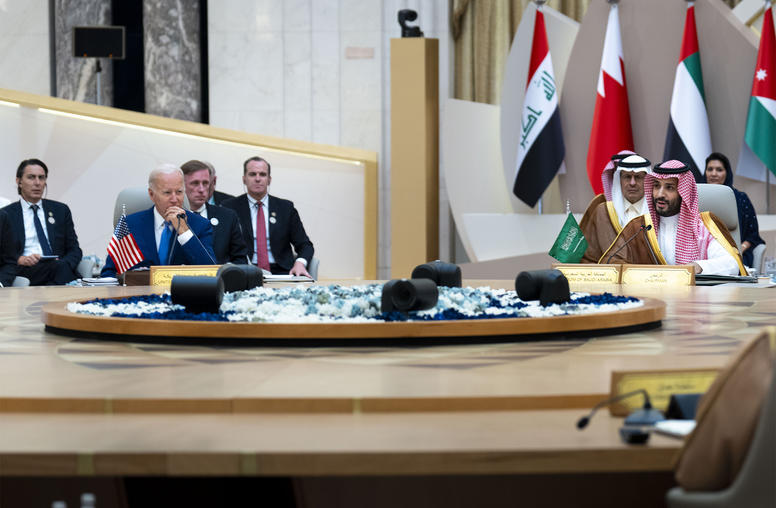
Five Takeaways from Biden’s Visit to the Middle East
President Biden made his first trip to the Middle East last week, visiting Israel and Saudi Arabia. While the trip yielded little in the way of flashy announcements — like new normalization agreements or Saudi Arabia boosting oil production — it did demonstrate that the United States remains focused on enhancing the region’s security architecture, particularly to counter Iran. Still, there were some notable developments, like a U.S.-Saudi agreement to build 5G and 6G telecommunications networks and Riyadh opening airspace to Israeli flights. On the Israeli-Palestinian front, the president affirmed Washington’s long-standing commitment to Israel and said that now was not the time to reengage on peace talks with the Palestinians.
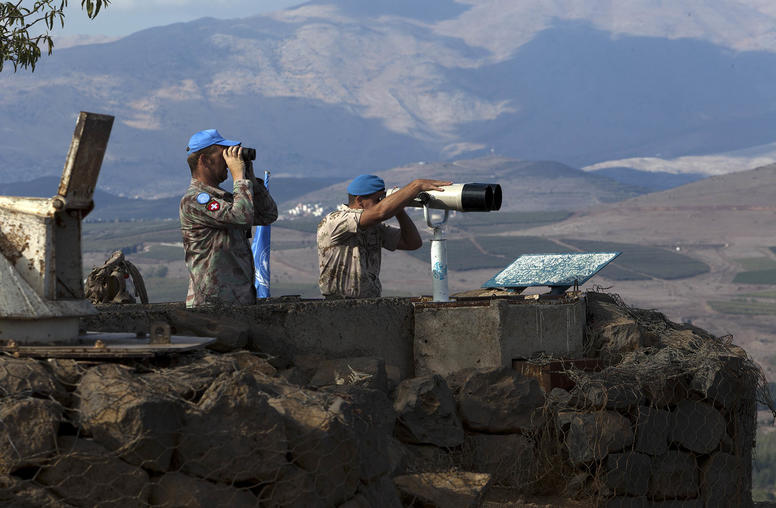
Could Syria Have Been Saved by a U.S. Effort to Bring It to Peace with Israel?
Over a decade into Syria’s civil war, it’s hard to fathom the country at peace and integrated with the international community. The Assad regime’s brutal oppression of protests in March 2011 sparked more than 10 years of violence, conflict and tragedy in the country. But in the weeks before, there was quiet hope that a clandestine U.S. effort could broker a land-for-peace deal between Israel and Syria. For Syria, such a peace agreement would have resulted in the lifting of U.S. sanctions and financial assistance, trade and investment from the international community, giving Syrians hope for a better future.

Event Extra: The Untold Story of a U.S. Attempt to Forge Israel-Syria Peace
In a new USIP book, Ambassador Frederic Hof tells the story of a secret U.S. effort to broker peace between Israel and Syria between 2009-2011. Just as that effort seemed to be making important progress, Syrian President Bashar al-Assad's regime began to violently suppress Syrian protesters, scuttling the chance for peace. Hof discusses what the foundation of Israel-Syria peace would have looked like, the pre-2011 perceptions of Assad as a "reformer," President Biden's trip to the Middle East and how the international community should deal with the Syrian dictator today.

Ambassador Hesham Youssef on Biden’s Trip to the Middle East
Biden set to meet nine Middle East leaders, USIP’s Ambassador Hesham Youssef says the trip aims to untangle recent tensions rather than “result in all kinds of breakthroughs and deliverables … the question is whether we can set ourselves on a path that can lead to more constructive relations.”
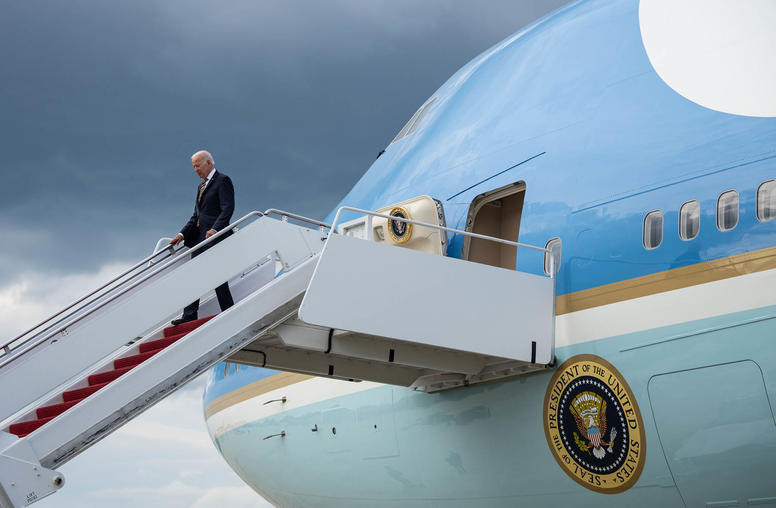
Biden’s Trip, and Ukraine’s War, Could Boost the Abraham Accords
President Biden’s Middle Eastern diplomatic mission this week contrasts with news reports and public discussion in the past year suggesting that the region has become a lesser priority for U.S. foreign and security policy. Biden’s visits to Saudi Arabia, Israel and the Palestinian West Bank territory build on a reality that Middle Eastern states have been knitting new relations, notably via the 2020 Abraham Accords. They are doing so in ways that Biden’s visit, and overall U.S. diplomacy, can advance.
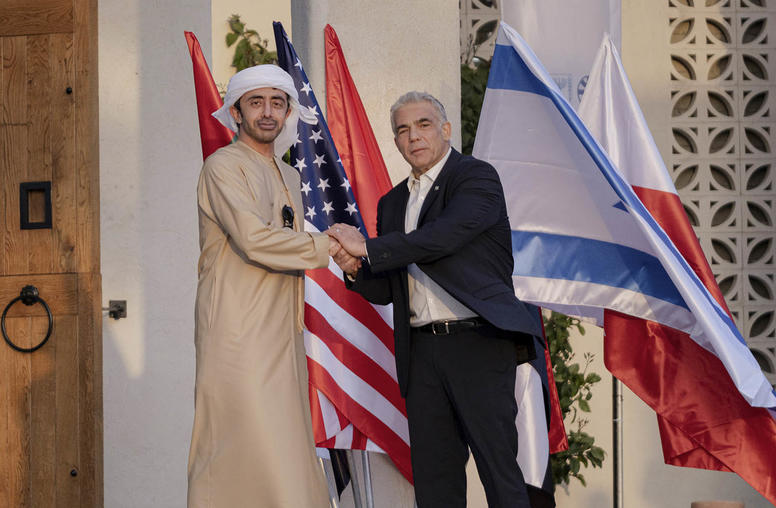
Historic UAE-Israel Trade Deal Proves Abraham Accords' Resilience
Nearly two years since the signing of the Abraham Accords — U.S.-brokered agreements normalizing Israeli relations with the UAE and Bahrain — the bilateral hope and promise encapsulated in that diplomatic achievement have borne fruit in several arenas. This is particularly the case between Israel and the UAE, underscored most recently by the Free Trade Agreement (FTA) signed between the two countries on May 31. Indeed, the agreement follows a steady pace of warming ties and joint endeavors since the two countries agreed to normalize ties in 2020.
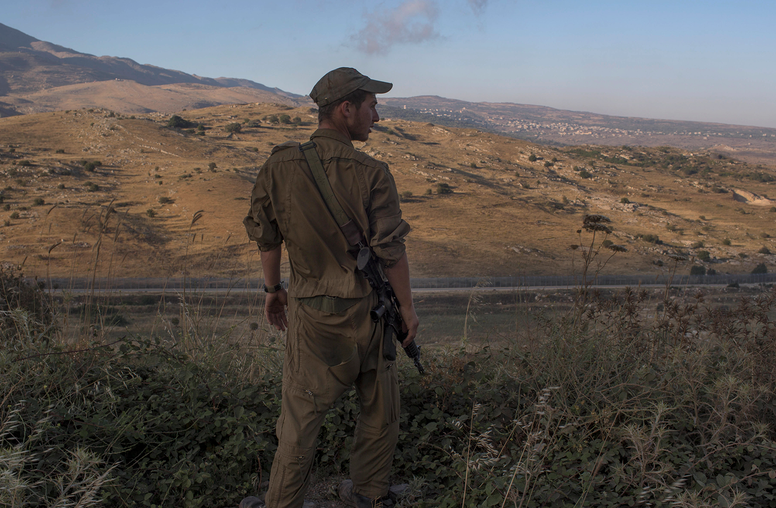
I almost negotiated Israel-Syria peace. Here’s how it happened.
In the summer and fall of 2010, American mediation aiming for peace between Israel and Syria was gaining momentum. Both sides had agreed that the United States could table a draft treaty and shuttle the text between Damascus and Jerusalem for comments and proposed revisions.
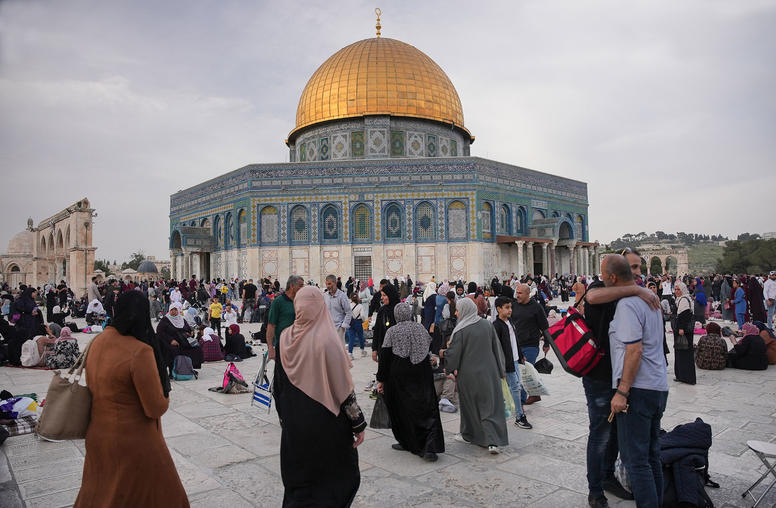
‘Firefighting’ Diplomacy Will Not Achieve Peace Between Israelis and Palestinians
The good news is that there are intensive regional and international efforts to avoid another Israeli-Palestinian war. The preventive effort has been extensive, and the United States seems to be carefully monitoring the situation. The bad news is the reconfirmation of what most already know: the Israeli-Palestinian status quo is volatile and not sustainable. The resulting successive wars only take us many steps further away from peace.